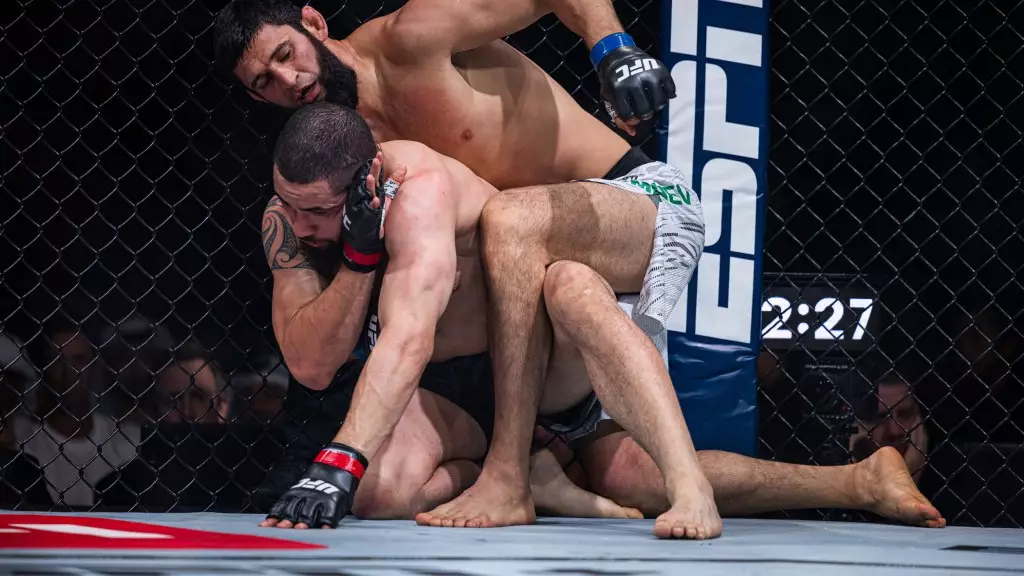In the realm of mixed martial arts, the convergence of styles plays a pivotal role in determining the outcome of a match. The recent bout between Robert Whittaker and Khamzat Chimaev at UFC 308 exemplifies this interplay, showcasing not only the fighters’ technical skills but also their mental resilience. Whittaker entered the octagon with an impressive record, but faced a formidable opponent in Chimaev, who boasts an unbeaten streak. The fight, which concluded with a first-round submission by Chimaev, highlighted Whittaker’s acknowledgment of his limitations against a specific type of aggression and grappling technique.
Whittaker’s analysis of the fight reveals a critical understanding of Chimaev’s tactical execution. He described the moment the fight transitioned from stand-up striking to wrestling, noting the immediate challenge posed by Chimaev’s “millimeter” takedown approach. This refers to the nearly imperceptible movements that opened up space for a takedown, a testament to Chimaev’s proficiency in blending different aspects of combat. Whittaker reflected on how replicating such a dedicated approach in training is nearly impossible, underscoring the uniqueness of Chimaev’s skill set.
Through Whittaker’s eyes, we see an athlete who appreciates the intricacies of grappling—specifically, the “heavy sag” of his opponent that made it difficult for him to escape once taken down. This speaks volumes about the importance of weight distribution and pressure in wrestling. While Chimaev’s strength is noteworthy, it is perhaps his grappling intellect and timing that are most disruptive to opponents.
Following the match, Whittaker’s comments regarding the face crank provide insight into the physical toll of such fights. The unexpected nature of the injury—requiring dental surgery—highlights the reality of combat sports where damage can be inflicted in seconds. Whittaker’s reflection on the squeeze and the precision with which Chimaev executed the move reveals a deep respect for his opponent’s capabilities. Not only does this suggest a fighter’s humility but also his enduring commitment to improving and learning from each bout.
Hearing Whittaker speak post-fight offers a glimpse into the mindset of fighters who often face defeat. There’s an inherent value in acknowledging one’s vulnerabilities in the octagon—an understanding that can lead to comprehensive growth. The mental aspect of adapting and evolving in response to high-level opponents cannot be overstated.
As fans analyze the implications of this fight, both fighters will undoubtedly dissect their own performances. For Whittaker, the loss is not just a setback but an opportunity for introspection and growth. His ability to articulate the fight’s dynamics clearly indicates a fighter who is willing to learn and improve. On the other hand, Chimaev continues to ascend in the UFC ranks, showcasing an evolving technique that keeps spectators at the edge of their seats.
The Whittaker vs. Chimaev match serves as a reminder of the brutal yet beautiful nature of mixed martial arts. Each fight offers lessons, revealing what fighters need to work on, while also celebrating their achievements. Watching how both athletes respond in their careers following this encounter will be crucial as they navigate the ever-changing landscape of MMA.

